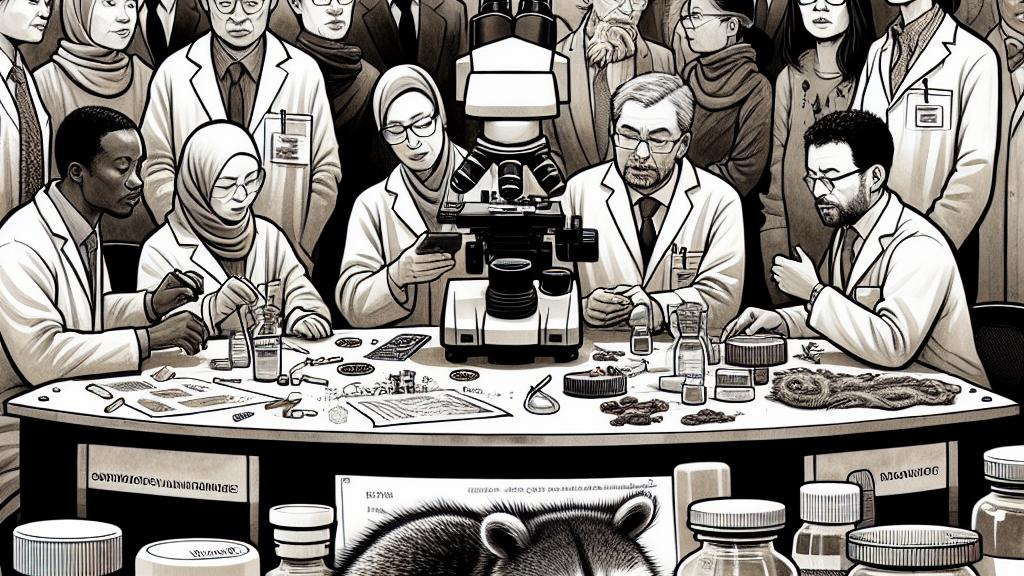Possible Origins of COVID-19 Linked to Raccoons in Wuhan, According to US Scientific Journal
Overview
- New research reveals a strong connection between raccoons and the origins of COVID-19 in Wuhan.
- Genetic analysis from the Huanan Seafood Wholesale Market unveils surprising findings.
- Long-standing hypotheses about bats and pangolins are now being critically reevaluated.

Groundbreaking Research Unveils New Insights
In a remarkable turn of events, recent research published in the prestigious journal Cell proposes that the origins of COVID-19 may be intricately linked to raccoons in Wuhan, China. This pivotal study involved an international team of 23 researchers who utilized advanced metagenomic analysis—an innovative technique capable of interpreting the genetic material from environmental samples. By meticulously examining samples collected from the notorious Huanan Seafood Wholesale Market, where initial cases were reported, the researchers uncovered a significant presence of raccoon DNA. This compelling evidence suggests that raccoons could have played a critical role in transmitting the virus to humans. Compounding this discovery, previous studies highlighted how species such as raccoons, rabbits, and dogs are especially vulnerable to COVID-19, raising crucial questions about the dynamics of wildlife interactions in urban centers.
Broader Implications for Global Public Health
The emergence of the COVID-19 pandemic has catalyzed an intense examination of the virus's origins, with scientific communities worldwide engrossed in understanding its pathways. For years, bats and pangolins were singled out as primary sources of the coronavirus based on genetic similarities. However, the newfound emphasis on raccoons shifts prevailing narratives and emphasizes the complex realities of the wildlife trade, particularly in bustling markets like Wuhan. This pivotal insight carries far-reaching implications. Countries heavily engaged in wildlife commerce need to enforce stricter regulations to prevent future outbreaks. To illustrate, the outbreak of COVID-19 highlights the urgent need for international frameworks designed to safeguard biodiversity and public health. As experts increasingly advocate for a 'One Health' approach that recognizes the interconnectedness of human, animal, and ecosystem health, it's evident that this new narrative serves as a vital lesson for policymakers globally.
Navigating Controversies: The Complexity of Origin Debates
Despite the pressing need for clarity on COVID-19's origins, the discussion is laden with controversy. Various factions within the United States government continue to support multiple theories, including the lab leak hypothesis, leading to fervent debates. While some agencies advocate for raccoons as potential intermediaries, others exercise caution, arguing that the genetic data does not conclusively point to raccoons as the sole origin of the outbreak. Adding to the complexity, the strained international relations, particularly between the U.S. and China, make this inquiry even more intricate. The Chinese government has firmly rejected assertions that its wildlife markets are responsible for the pandemic, instead positing that the virus may have arrived via imported frozen food. As we move forward, comprehending the true origins of COVID-19 transcends academic discourse; it is imperative for guiding future attempts to avert similar pandemics. Promoting transparency in scientific research and fostering cooperation across nations will be essential as the global community grapples with the multifaceted dynamics of infectious disease control.

Loading...